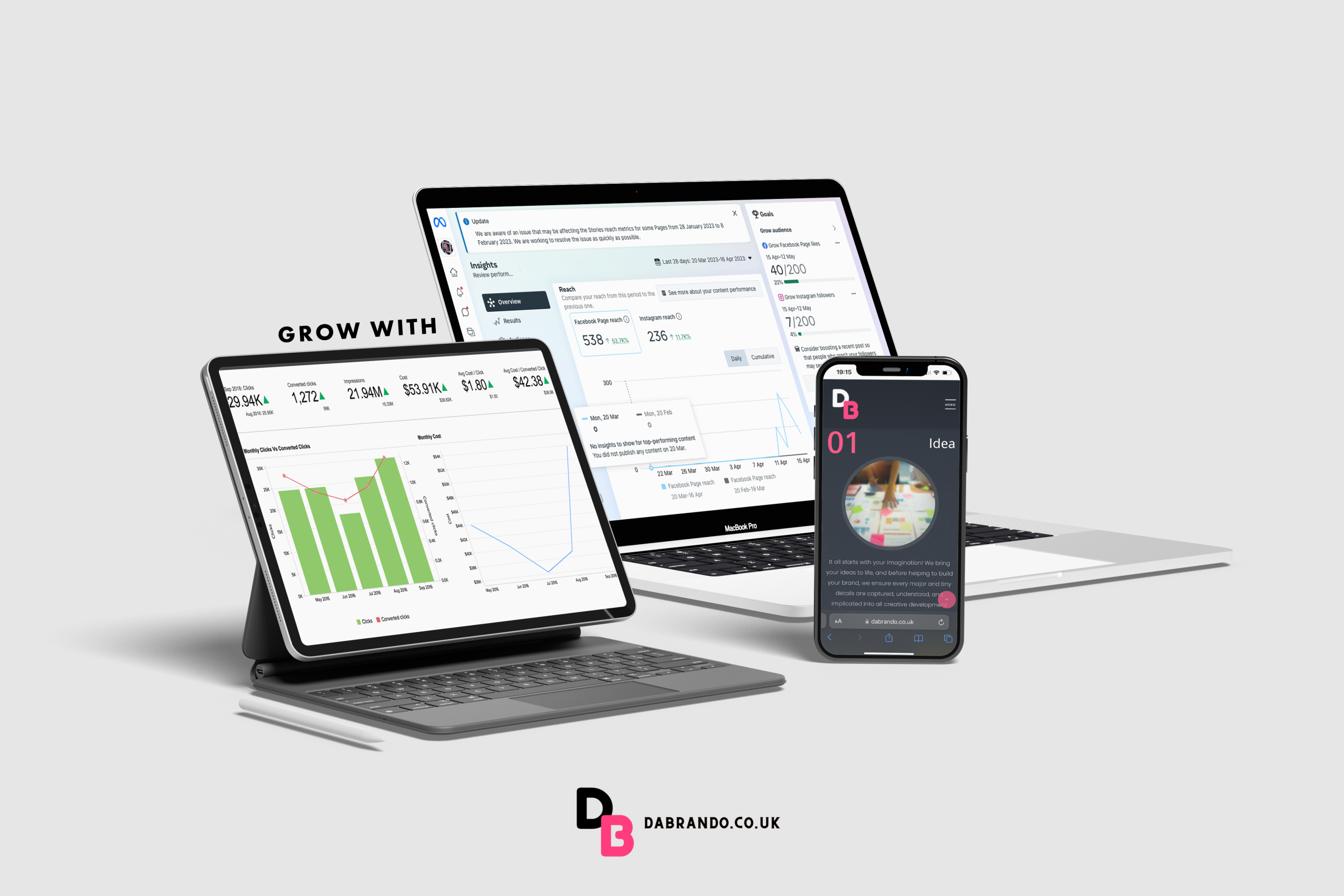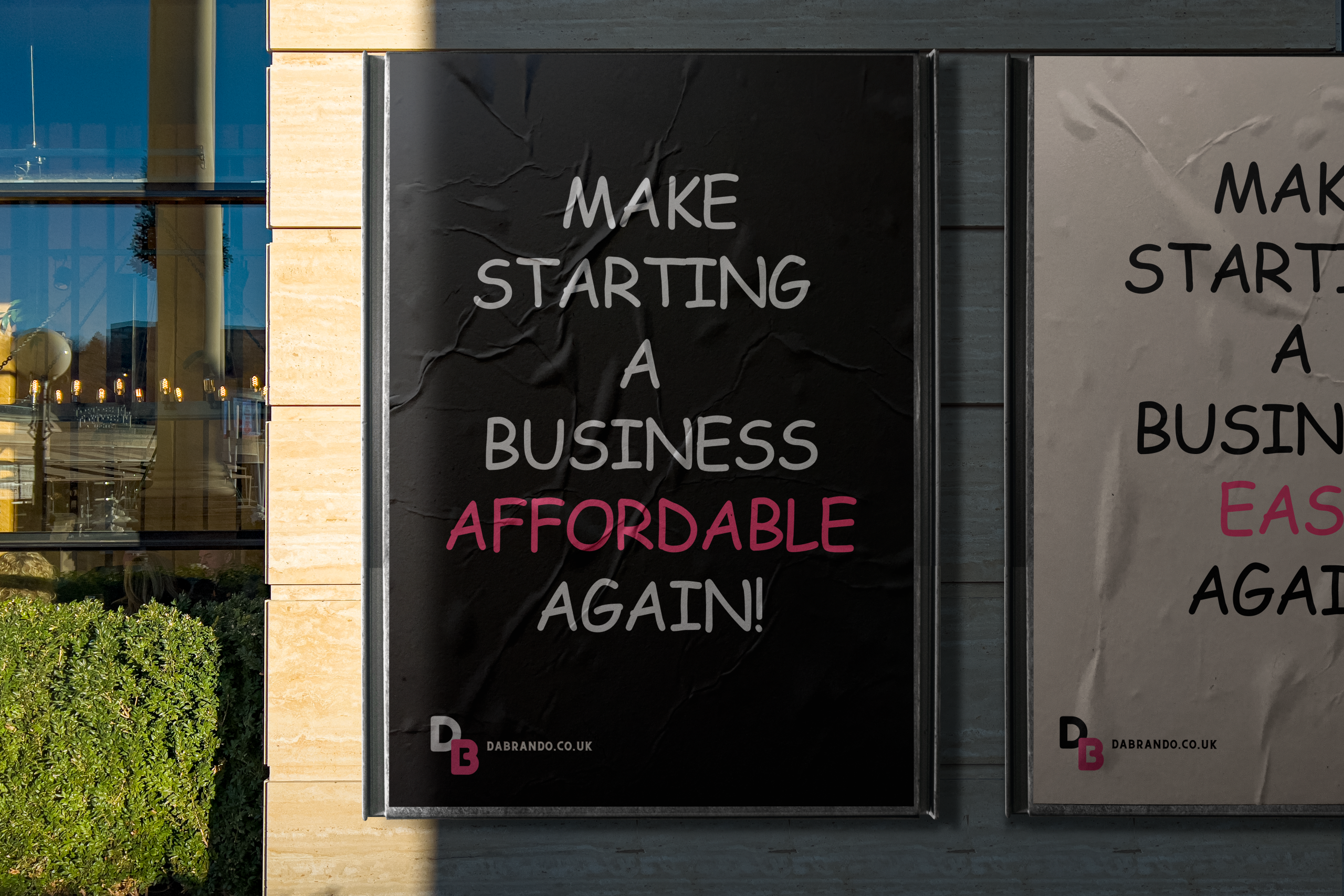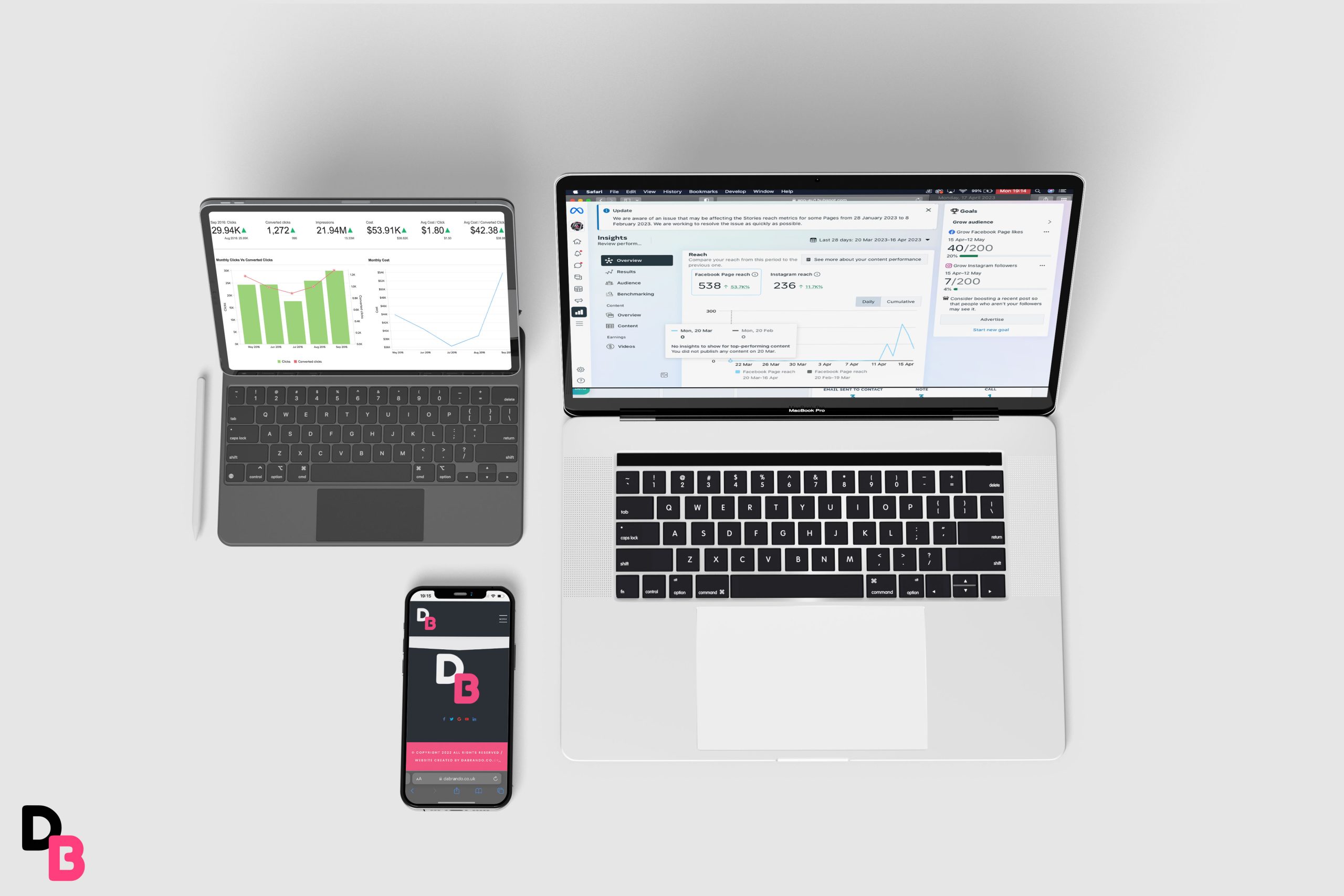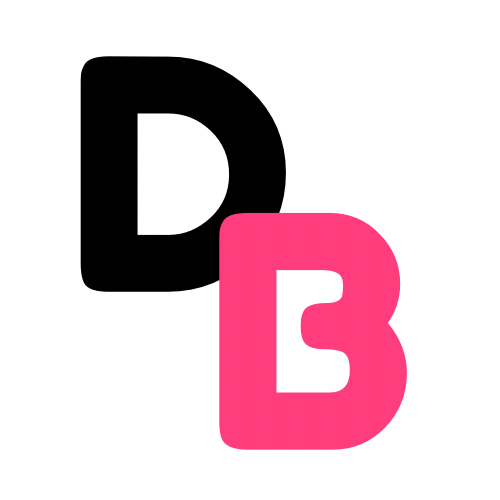How to Start a Business With Less Than £100
Think you need thousands to launch a business? Think again.
Starting your own business in the UK for under £100 is not only possible—it’s actually more common than you might think. Thanks to a wave of free digital tools, budget-friendly platforms, and creative business models, building your own brand or side hustle is now more accessible than ever.
At Dabrando, we work with entrepreneurs who start from scratch—and we know exactly what works. This step-by-step guide shows you how to launch a real business on a shoestring budget, without cutting corners on quality or professionalism.
1. Pick a Low-Cost Business Idea That Fits Your Skills
The first step is choosing a business model that doesn’t require big upfront costs. Forget office space or stockpiling products—focus instead on services or digital products you can sell with just a laptop and a bit of hustle.
Top low-budget business ideas:
- Freelance services (design, copywriting, admin support, etc.)
- Social media management or content creation
- Digital downloads (ebooks, Canva templates, planners)
- Dropshipping or print-on-demand stores
- Virtual coaching or tutoring
- Affiliate marketing via a blog or YouTube channel
Start with what you know and what people already ask you for help with. That’s your niche.
💸 Cost so far: £0
2. Register Your Business (It’s Free!)
In the UK, the easiest way to get started is by registering as a sole trader with HMRC. It’s completely free and takes about 10 minutes. You can upgrade to a limited company later if needed, but this keeps your costs—and admin—low to begin with.
💸 Cost: £0
3. Secure Your Domain Name & Brand Identity
Next, you’ll need a name and a domain to give your business an online presence. Choose something catchy, easy to remember, and available across domain names and social media handles.
Use tools like Namecheap or GoDaddy to grab a .co.uk or .com domain. You can also design your logo for free using platforms like:
💸 Cost estimate: £10–£15 for a domain
4. Build a Website on a Budget
Your website is your digital storefront—and you don’t need to pay a developer to get online. DIY builders like Wix, Squarespace, or WordPress.com make it easy to create a professional-looking site.
Just make sure your site includes:
- An About page
- Your services or products
- Contact form or email link
- Social media links
- Testimonials (real or initial feedback from early users)
💡 Bonus: Platforms like Carrd are perfect for landing pages and only cost around £19/year.
💸 Cost estimate: £0–£30 depending on the platform
5. Start Marketing Without Paid Ads
With little to no ad budget, organic marketing is your best friend. Focus on free strategies that bring you visibility and build credibility:
- Post consistently on social media (TikTok, Instagram, or LinkedIn depending on your audience)
- Join Facebook Groups or online communities where your target customers hang out
- Set up Google Business Profile if you’re targeting local clients
- Write blog posts around search terms your ideal customers are Googling
- Use free email tools like Mailchimp to build a mailing list from day one
💸 Cost: £0
6. Use Free Software to Run Smoothly
Plenty of high-quality tools offer free versions that help you run your business without upfront investment.
Best free tools to try:
- Canva – for graphics, social content, PDFs
- Google Workspace – Docs, Sheets, Gmail, Drive
- Trello or Notion – task management and planning
- Zoom – for client calls and virtual meetings
- Wave or PayPal – for sending invoices
💸 Cost: £0
7. Land Your First Customers
To get your business off the ground, focus on gaining social proof as quickly as possible. Here’s how:
- Offer an introductory discount in exchange for testimonials
- Reach out to friends and local businesses for early work
- List your services on freelance platforms like Upwork, PeoplePerHour, or Fiverr
- Ask for reviews and showcase results on your website or social pages
Building trust is key—even if you start with just one happy client.
💸 Cost: £0
8. Reinvest and Grow
The first few pounds you earn should go straight back into improving your setup—whether that’s upgrading your website, investing in better tools, or testing small paid ad campaigns.
As your revenue grows, focus on scaling what works and outsourcing what doesn’t.
Final Thoughts
You don’t need a big budget to start a successful business. What you do need is a clear plan, the willingness to learn as you go, and the ability to take action with what you already have.
At Dabrando, we believe in helping businesses grow from the ground up. Whether you’re building your first brand or scaling your side hustle, we can help you design a standout website, sharpen your message, and attract your ideal clients—without wasting time or money.
📧 Need some help creating an affordable, professional website?
Contact us today at grow@dabrando.co.uk or explore our services to learn more, or Book A Free Discover Call to get started today!
